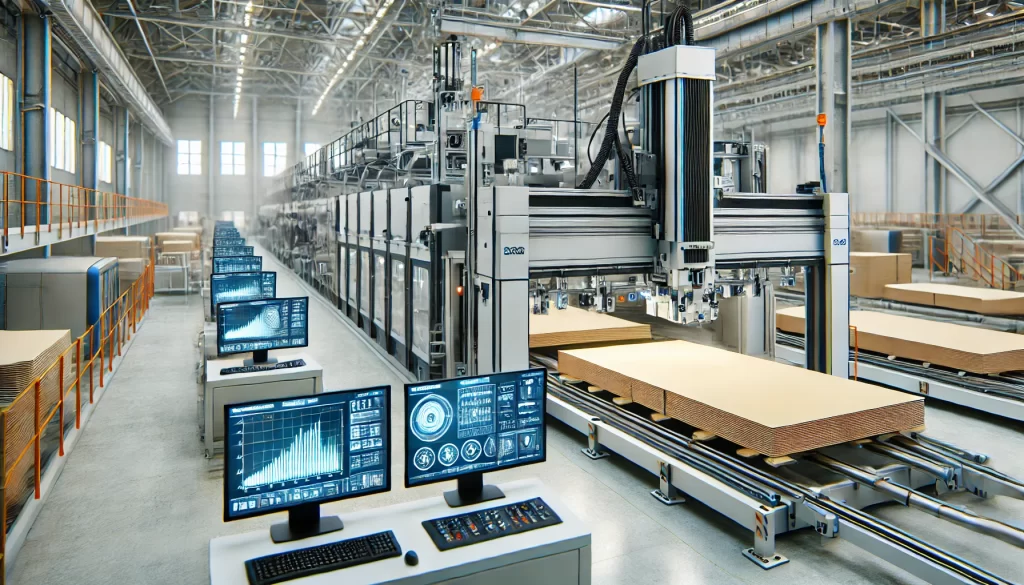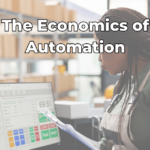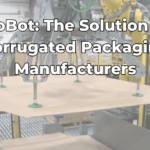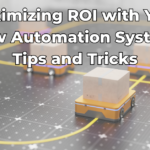Just as it has in many other sectors, artificial intelligence (AI) has sparked an exciting revolution in the realm of industrial automation. AI, coupled with robotics, both enhances traditional manufacturing processes and paves the way for smarter, more adaptive systems. This blog explores the impact of AI on industrial automation.
We’ve highlighted four key areas where these technologies are making significant strides, namely:
- predictive maintenance,
- more optimized manufacturing processes,
- human collaboration,
- and advancements in quality control.
1. AI has enabled predictive maintenance.
Traditionally, industrial maintenance schedules have been based on routine inspections or predefined intervals, often leading to unnecessary downtime. AI, however, is beginning to change this. By monitoring equipment performance and identifying patterns indicative of potential failures, AI algorithms can predict when maintenance is needed with remarkable accuracy.
No more one-size-fits-all solutions across the industry: AI can, essentially, tell an organization when its specific machines will need adjustment and repair, all based on custom data. This proactive approach minimizes downtime, reduces maintenance costs, increases workplace safety, and extends the lifespan of machinery.
2. AI creates a more optimized manufacturing process.
AI-driven optimization is another area where industrial automation is seeing massive changes. Needless to say, manufacturing processes are complex systems with countless variables affecting output quality and efficiency. AI excels at analyzing these variables in real-time, however, making adjustments dynamically to optimize production as needed.
For example, AI algorithms can change parameters in the manufacturing workflow based on incoming data from sensors and historical performance. This adaptive capability enhances product quality and also reduces waste and energy consumption. Moreover, AI’s ability to learn from feedback allows for ongoing improvements.
3. AI will not remove the human element of manufacturing—in fact, quite the opposite.
Contrary to popular misconception, AI in industrial automation isn’t about replacing human workers but rather augmenting what they can do. By automating routine (and physically demanding!) tasks, AI allows human workers to focus on more complex decision-making, problem-solving, and creative activities that AI cannot handle.
For instance, AI can handle repetitive assembly tasks while human workers oversee operations, troubleshoot issues, and strategize based on AI-generated insights. This relationship between AI and human expertise not only improves operational efficiency but also creates opportunities for upskilling and career advancement among workers. It’s a win-win for all.
4. AI will enhance quality control.
The challenge of ensuring products meet stringent standards and customer expectations is ever-present in any industry. Thankfully, AI-driven quality control introduces an entirely new level of accuracy.
Using computer vision and machine learning algorithms, AI can analyze visual data from cameras and sensors to detect subtle defects that may elude human inspectors. Moreover, AI can learn from examples, continuously improving its ability to recognize defects and adapt to variations in product specifications. This capability not only enhances product quality but also leads to substantial cost savings…and, of course, improved customer satisfaction.
In conclusion, AI has immense potential within industrial automation.
From predictive maintenance that drastically reduces downtime to optimized manufacturing processes that enhance quality and efficiency, AI is revolutionizing the way industries operate. Additionally, AI-human collaborations promise a future where technology amplifies human capabilities rather than replacing them.
Embracing these emerging trends in AI-powered automation will be crucial for industries aiming to stay competitive in today’s market. Contact us to discuss how we can help.






